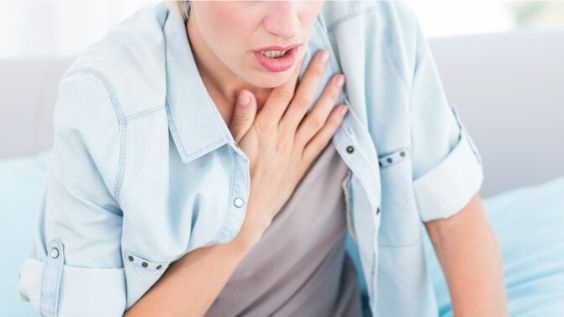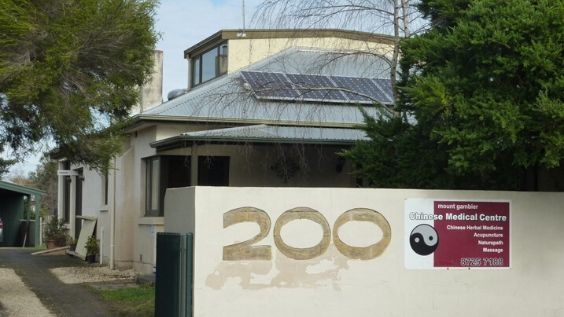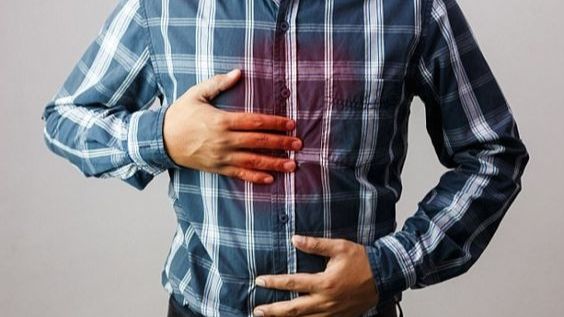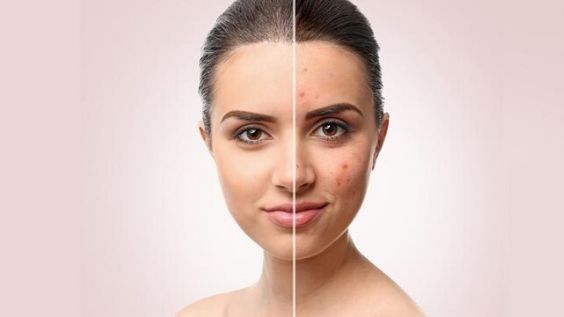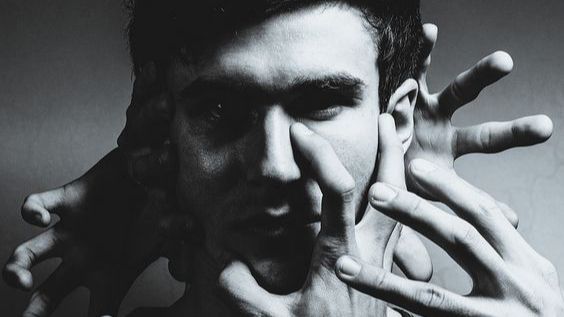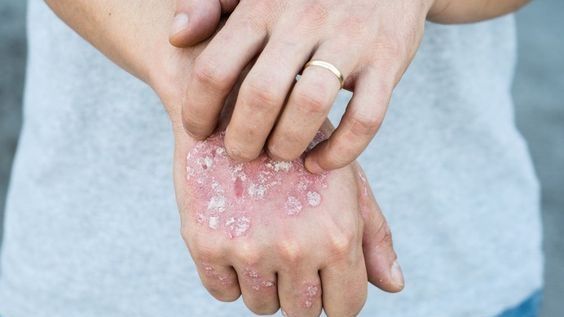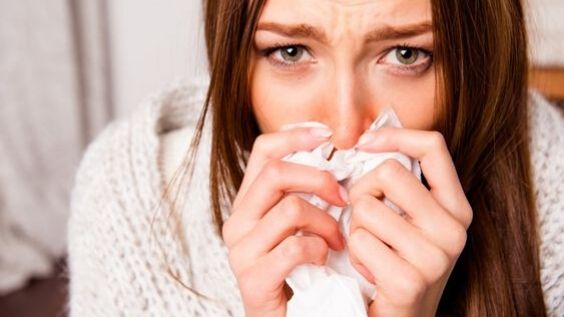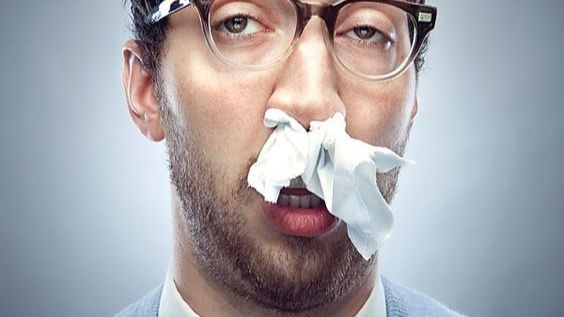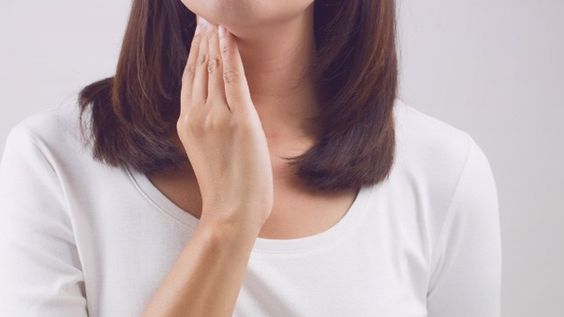
The two main clinical syndromes of the thyroid are over activity and under activity. The classic Chinese medical literature discusses thyroid conditions in terms of swelling of the thyroid gland, without specific reference to either hyperthyroid or hypothyroid conditions.
Swelling of the thyroid gland is known as ying bing in Chinese medicine. The term is usually translated simply as goitre, but there are different types of ying that reflect a variety of thyroid problems. A typical contemporary text gives the following types of ying:
– qi yung (diffuse swelling, goitre)
– rou ying (benign nodules, adenoma)
– ying yong (inflammation of the thyroid, thyroiditis)
– shi ying (malignancy)
– ying qi (thyroid swelling with heat, overactive thyroid)
Below are some causes for hyperthyroidism:
Graves disease (thyrotoxicosis): This accounts for about 75% of cases. Autoimmune in nature, due to stimulation of the thyroid by antibodies which bind to TSH receptors and mimic its effect. Can occur at any age but its unusual before puberty and most commonly affects the 30-50 year old age group. Women are affected about four times more often than men. There are genetic dispositions and familial link. The trigger for onset of symptoms in genetically susceptible individuals may be infection, stress or emotional trauma. The course of the illness can fluctuate with period of increase and decrease or remission, or may progress to hypothyroid.
Multinodular goitre: Most common in older women, 50+. Usually T4 and T3 are only slightly elevated, but because and older age group is affected the cardiovascular features, arrhythmia, fibrillations and palpitations predominate.
Autonomously functioning single nodule (toxic adenoma or ‘hot’ nodule): Most common in women over 40. The nodule is follicular adenoma which autonomously secretes thyroid hormone and inhabits TSH. Mild hyperthyroidism and usually only T3 is elevated.
Thyroiditis (subacute postpartum): May be viral (mumps, adenovirus) or postpartum. The viral type appears after an acute upper respiratory tract infection and leads to transitory hyperthyroidism due to destruction of follicle cells with relese of hormone into the blood, sometime followed by hypothyroidism. Postpartum thyroiditis is mild and self limiting, although 5-10% of postpartum women are affected. Can recur with subsequent pregnancies with patients gradually progressing to hypothyroidism.
Iodine induced: Drugs, especially amiodarone (an anti-arrhythmic agent loaded with iodine) and radiographic contrast media can overloaded the gland and induce a mild hyperthyroidism.
Some of the most common features of hyperthyroidism includes:
– anxiety
– nervousness
– emotional lability
– irritability
– hyperkinesis
– increased sweating
– heat intolerance
– increased basal metabolic rate
– fatigue
– breathlessness with exertion
– weight loss
– increased frequency of bowel movement
– palpitations
– tachycardia
– arrhythmias
– excess lacrimation
The thyroid and its influences in Chinese medicine:
The anterior neck and thyroid gland are influenced primarily by the Liver, Heart and Kidneys organ systems, and the renmai which traverses the area. The triyin and yangming organ systems (Lung, Spleen, Large Intestine and Stomach) can also be involved in thyroid pathology because of local influence via channel pathways, proximity of the organ itself (Lungs), and as a result of dampness and phlegm that can be created by their weakness.
The throat and neck are also the bridge between the head and the body. The neck connects the head, the seat of the intellect, to the chest, the seat of the emotions. The throat is associated with communication and the ability to express oneself clearly. The neck is the place where emotions can get caught when their expression is repressed, inappropriate or otherwise difficult. This can manifest in disorders of the throat and vocal cords, in globus hystericus (plum pit qi) and thyroid problems.
Etiology:
There are two primary pathological processes we see in patients with thyrod disorders. They manifest from disruption to two of the major energetic axes of the body, the Liver and Spleen, and the Heart and Kidney.
Disharmony between the Liver and Spleen creates some of the necessary preconditions for thyroid dysfunction, such as qi constraints, heat and phlegm, as well as weakened resistance (qi deficiency). Once these preconditions exist then any disruption to the Heart and Kidney axis by emotional trauma, persistent or increasing stress, or by pathogenic invasion such as wind heat or warm disease may precipitate clinical thyroid disease.
Treatment:
There are two broad aims of treatment. Overall Chinese medicine treatment aims to correct the constitutional imbalances that led to the disorder in the first place. When heat is extreme, however, it must be swiftly cleared to avoid damage to yin. Acupuncture is often the treatment of choice in these circumstances (particularly when Liver pathology is responsible) with its unparalleled ability to regulate qi, clear heat and calm the shen very quickly.
In cases with more deficiency, treatment of the constitutional aspects with herbal medicine is important.

